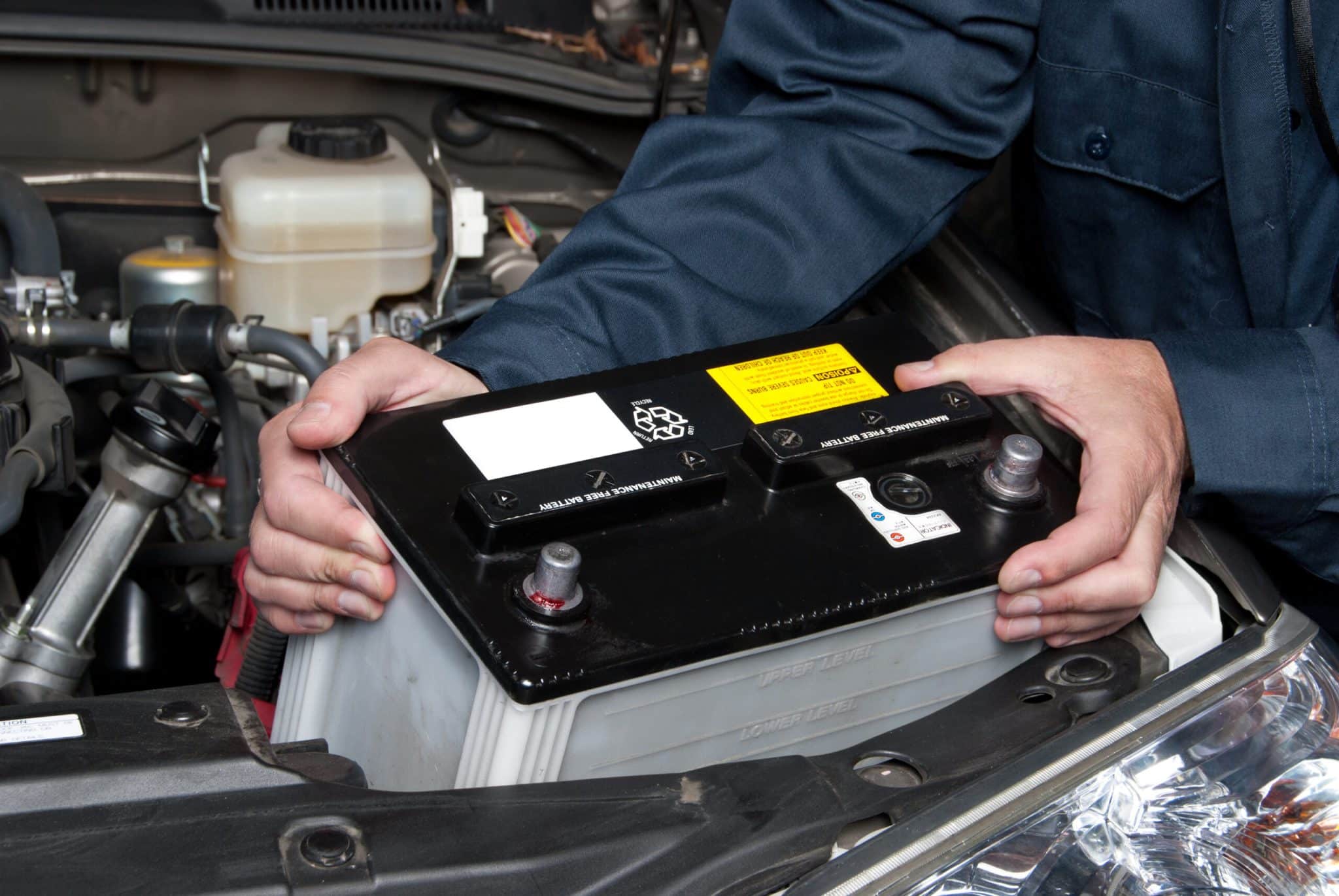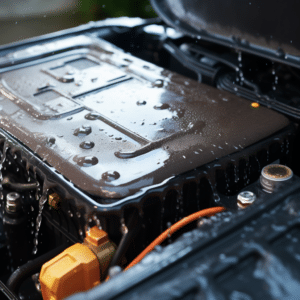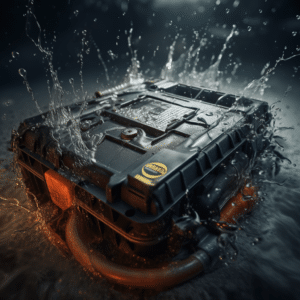
Wet Car Battery Myths and Facts Unveiled
A car battery is the heart of your electrical system. It provides consistent power to all the various functions in your car, whether it’s starting your vehicle or passing power through to all of your electrical systems.
Can a car battery get wet? Yes, it can. If your battery is exposed to water, you will need to take some important steps before you attempt to jump-start your engine or use any of the other methods above. First, let’s talk about what would cause water to get in your car battery in the first place. There are some pretty obvious reasons why this happens, but there are also more subtle ones that may not be so obvious.
Why Your Battery could get wet
Car batteries are designed not to allow any water inside. However, some circumstances can cause your battery to get wet.
1. Rain
The most common reason why batteries get wet. If you change your battery in the rain, it is likely to get wet, especially if the rain is heavy.
2. Submersion
Your battery might get wet if the car is totally submerged in water through floods or crashing into a river or lake.
Can water damage car batteries?

Surprisingly, water cannot damage your car battery. Of course, this doesn’t mean that you should dip the battery in a swimming pool, but it should stop you from worrying about changing it in the rain.
Basically, a car battery’s casing is made of polypropylene resin, which keeps the battery water inside. As a result, water cannot get into the battery if it’s already holding battery water. However, on some occasions, the water might find a passage through the areas around the lids and terminals.
The difference in water resistance might also come down to the type of car battery you are using. There are two types of car batteries: vented and sealed. Let’s look at their differences and how they hold water off.
Vented vs sealed batteries
Just as its name suggests, a sealed battery will not allow anything to penetrate its interior. It’s completely sealed on all sides.
On the other hand, a vented battery allows excess gasses to be vented out. They do this by utilizing a rubber membrane that helps release gasses without allowing anything back in.
Therefore, even if you have a vented battery, water still can’t get into the interior easily.
Can you charge a battery in the rain?
Charging your battery in the rain is as safe as doing it on a sunny day. If your car is having trouble starting, you can hook it up to a battery maintainer and juice it up. In a few hours, you will have enough charge to start the car.
If you don’t have access to a battery charger or maintainer, you can use a battery pack to jump it. Another option would be to ask someone around who has a car to jump your battery.
Can you jump-start a car in the rain?
You’re out in the woods, your battery dies, and it starts pouring. Is it safe to jump-start the battery?
Yes, you can jump-start the battery in the rain without worrying about electrocution. The only way for you to get shocked by the wet battery or jumper cables would be by touching both naked terminals simultaneously. Not only is that unlikely, but most jumper cables are also mostly insinuated. Therefore, jump-starting a car is not any riskier in the rain than on a sunny day.
Is it safe to install a car battery in the rain?
If the situation demands it, it’s okay to install a battery in the rain. Any water that falls on the battery while the hood is open cannot damage it or conduct electricity. The conductivity of rainwater is generally low, meaning it can’t carry much electrical charge.
Can you remove a battery in the rain?

Just like installing, removing a battery in the rain is safe. Rainwater cannot fall fast enough to cover the whole top of your battery. Most of it will trickle through the sides. Furthermore, even if your battery were totally submerged in water, the metal leads would still be better electrical conductors than the water around the battery.
Can water short a battery?
As we discovered earlier in the article, rainwater is not a good conductor of electricity. Therefore, you don’t need to worry about rain shorting your battery.
For this to happen, you’d need a continuous supply of water connecting both terminals, and even then, the battery might not be short. However, the water might cause the metals on the terminals to corrode.
Why is a car not starting after driving it through still water?
It is a common problem for cars to have trouble starting after driving them through still water. However, this is more likely to be caused by damage to the engine than the battery.
For example, if you suck water into your air intake, the engine might hydrolock (when the engine tries to compress water.)
What else can cause the battery to die?
If your battery is dead, it is almost certainly caused by something other than rain or driving through still water. One of the most common reasons is leaving the interior lights or headlights on overnight.
Another reason would be if you haven’t driven your car for some time. This is because your battery is charged when the vehicle is in motion. In such a case, all you need to do is to jump the battery.
The battery might also die from old age. As batteries get older, they start becoming inefficient. One of the signs that your battery is getting old is a check engine light, a bad smell indicating corrosion, or the engine is slow to start.
To wrap it up
All in all, a wet battery is not something you should worry about. Batteries are designed to keep the water out. They are also very durable and go through water endurance testing at the factory.
However, to be on the safe side, keep your battery in a dry place and clean the terminals regularly to prevent corrosion.
